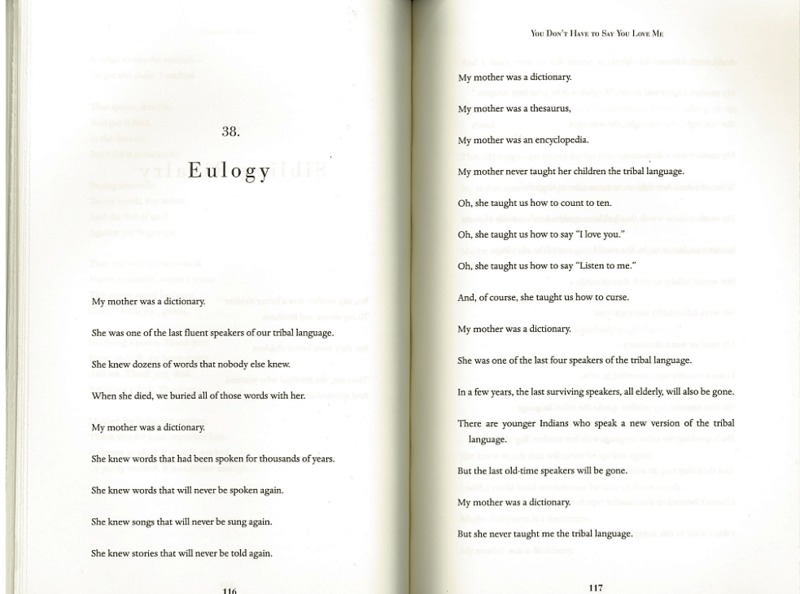Introduction
Sherman Alexie is a Spokane/Coeur d'Alene Indian who grew up on the Spokane Indian reservation in Washington. He is an author, poet, and film maker, sharing the experiences of Native Americans and reservation life. Alexie began writing in college in the 1990's and continues to write currently. His most recent publication is his memoire, You Don't Have to Say You Love Me: A Memoire.
Alexie's works focus on violence, alcoholism, poverty, and trauma amongst Native Americans. In an interview with Sarah A. Quirk from the Dictionary of Library Biography, Sherman said that he writes with three core questions in mind: “What does it mean to live as an Indian in this time? What does it mean to be an Indian man? Finally, what does it mean to live on an Indian reservation?" (Quirk, 3-10)
In my exhibit, I analyze You Don't Have to Say You Love Me, which deals directly with death in it's many forms, including the death of Alexie's mother. His mother was one of five living speakers of the Salish language living on the Spokane Indian reservation in Washington. I will take a particular focus on the poems and prose which directly deal with language - Alexie's descriptions of himself, other Spokane Indians, and how Native identity is reconciled through his writings.
Alexie recognizes that he distances himself from the assumed stereotype of Native American "oral tradition" and natural spirituality. In an interview with John Purdy, Alexie notes, "I don't know about you, but growing up all I got exposed to was Mother Earth Father Sky stuff, or direction stuff. That's how I thought Indians wrote. I didn't know I could actually write about my life.... I could write about fry bread and fried bologna" (Purdy).
Alexie's memoire provides an up-close look at the death of his mother and the death he senses of a connection to Spokane identity. You Don't Have to Say You Love Me and the poetry and prose within detail the ways that Alexie reconciles reservation life and finding identity through the loss of ties to ancestral language and oral tradition. However, as he writes of cultural dismemberment, Alexie uses language features associated with a Native identity. This project will examine the ways in which Alexie crafts a narrative which reflect the identity he feels seperated from.

